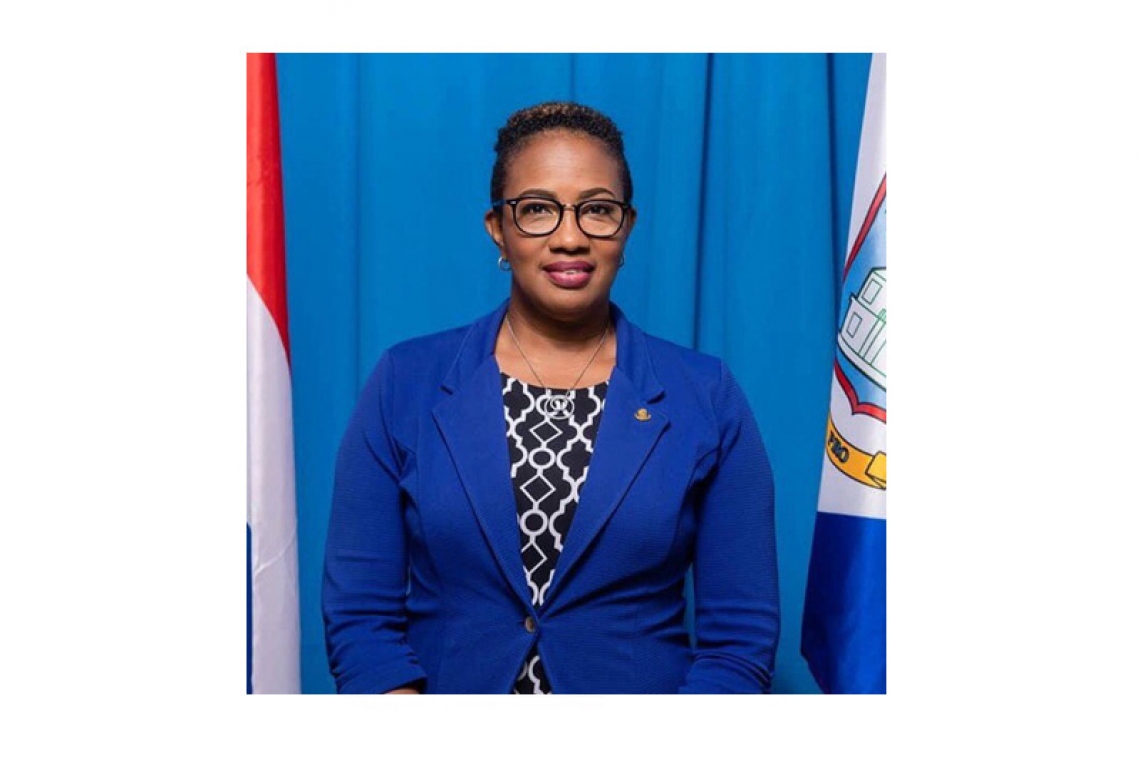PHILIPSBURG--Difficulties in attracting foreign companies to St. Maarten, fierce competition in the local market, and government’s capacity constraints were among the reasons given by Prime Minister Silveria Jacobs as to why projects under the St. Maarten Trust Fund have not been implemented in a timely manner.
“Projects have faced significant difficulties in attracting business to the small market in St. Maarten, as well as fierce competition with other ongoing works,” Jacobs told Members of Parliament (MPs) in a plenary session about the St. Maarten Trust Fund on Tuesday afternoon.
Jacobs also said government has “serious capacity constraints” to follow the rules and procedures set by the World Bank.
“There is a high expectation among stakeholders about the time it takes to prepare and implement the different projects. This includes, sometimes, the expectation of the government of the Netherlands itself, which does not match the reality of what it takes to prepare and implement projects on a small island, especially in accordance with the applicable rules of the World Bank.
“We need to be very frank that there are serious capacity constraints on the side of the government of St. Maarten as well, and not everything can be done at once. Capacity constraints exist especially in the areas in which we have limited experience, including international public procurement and environmental-social safeguard requirements of the World Bank,” she said.
During the meeting Jacobs answered the questions posed by MPs during the previous meeting. In response to MP George Pantophlet of National Alliance (NA), Jacobs said the fund’s unused money would be transferred to the Netherlands if the Trust Fund is dismantled and there is cash still available. She said the Trust Fund is to be dismantled by December 31, 2025, but she is trying to get an “extension” so that the funds can remain available to the country “as long as necessary.”
“If more time is needed, more time should be given to complete the tasks, as we’ve realised that the procurement process has been taking much longer than anticipated. In real-life situations, anticipated expectation requires adjustments to suit the unexpected realities that we sometimes confront,” said Jacobs.
She said the interest accrued on the Trust Fund money is available for future projects and is added to the “larger pot.” Currently, the interest stands at US $12 million, said Jacobs.
If funds are spent in a way that is not in line with the grant agreements, then government will be required to pay it back to the World Bank, said Jacobs in response to a question by MP Sarah Wescot-Williams of United Democrats (UD).
In the previous meeting, MP Grisha Heyliger-Marten of United People’s (UP) party asked whether foreign companies doing work under the St. Maarten Trust Fund are required to register in St. Maarten or if they can use a local company as a proxy. Jacobs said foreign companies can use either option, adding that they must comply with St. Maarten’s tax laws.
MP Claudius “Toontje” Buncamper of United St. Maarten Party (US Party) asked about the country’s relationship with the Sendai Framework for Disaster Risk Reduction 2015-2030. The Sendai Framework works hand-in-hand with the other 2030 Agenda agreements, including the Paris Agreement on Climate Change, the Addis Ababa Action Agenda on Financing for Development, the New Urban Agenda, and the Sustainable Development Goals (SDGs).
Jacobs said St. Maarten’s membership in the Caribbean Disaster Emergency Management Agency (CDEMA) ensures our compliance with the Sendai Framework. “CDEMA advocates for the harmonisation of indicators for disaster-risk reduction, reflected with global agendas such as the Sendai,” she said.
Jacobs said the kingdom government paid for St. Maarten’s membership for CDEMA through 2021. St. Maarten must pay for its membership as of 2022.
Several MPs heavily criticised the National Recovery Program Bureau (NRPB) in an earlier meeting and questioned the contract and evaluation of NRPB Director Claret Connor. Jacobs said he had been appointed in January 2019 for an initial period of three years, with the possibility to extend the contract on an annual basis afterwards. The position of NRPB Director is appointed by National Decree and its evaluation is the responsibility of the Minister of General Affairs, she said.
After Jacobs answered the questions and clarifications, the meeting proceeded to the first round of questions in its second agenda point.
MP Christophe Emmanuel of NA posed questions about the Trust Fund’s project to upgrade the country’s hurricane shelters, specifically asking about how companies were selected.
Buncamper asked about the hurricane shelters and the project to repair schools, while MP Omar Ottley of UP said he will submit a motion during the second round of questions.
MP Rolando Brison of UP questioned the funding for tourism recovery projects.
The meeting adjourned around 5:00pm – after Brison’s questions – to allow MPs to prepare for the potential tropical cyclone forecast to affect the country on Wednesday. Other MPs will pose questions when the meeting resumes.







